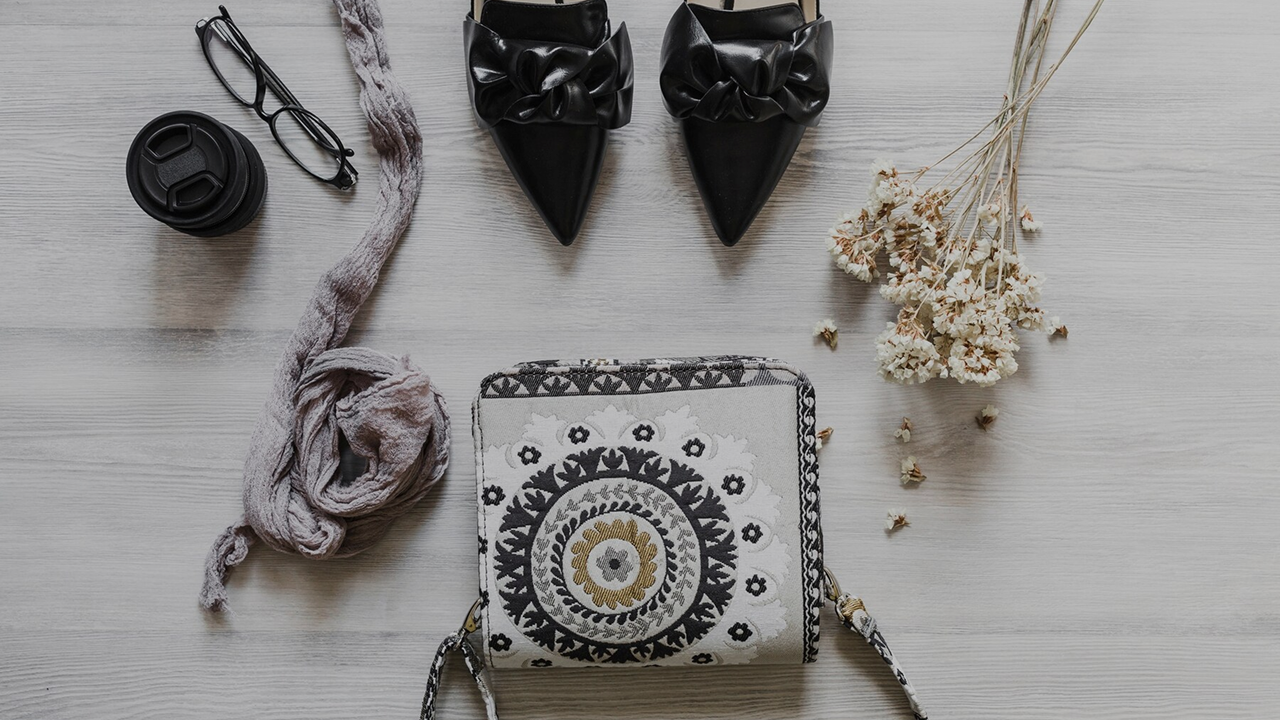
Is your fashion holding you back at work?
You walk into the office wearing a perfectly tailored blazer, designer heels, and a bag that screams elegance. Heads turn, compliments roll in—but then, something feels off. Your boss seems… distant.
The Unspoken Politics of Workplace Fashion
Regardless of industry, if you work in a corporate environment, there’s always some level of office politics at play. Many companies operate much like high school cliques—where an ‘in-group’ exists—those who regularly interact with leadership, are trusted with information, and seem to get first dibs on advancement opportunities. Then there’s everyone else.
Some people on the outside may lack ambition or self-awareness and are more tolerated than valued. But others—talented, hardworking, and personable—still find themselves stuck. They deliver great results, yet they’re mysteriously overlooked for promotions or important projects. Could it be your fashion?
When Dressing Well Becomes a Double-Edged Sword
Some people dismiss fashion as trivial. But if something brings you joy—whether it’s gardening, painting, playing an instrument, or curating the perfect outfit—it’s anything but trivial.
Fashion has always been my thing. My wardrobe could rival that of a top fashion influencer, and just being in the presence of timeless, quality pieces excites me. I inherited this love from my mother, who dressed to the nines for every occasion. She believed that grooming and dressing beautifully weren’t just about style—they were a sign of self-respect and good manners.
But over time, I’ve learned that elegant fashion in the workplace can create tension. Loving fashion is one thing; knowing where and when to showcase it is another.
A Personal Experience: When Style Backfires
I’ll never forget a team meeting I attended. It was post-COVID, and I was thrilled to be back in the office. I had to fly to North Carolina for the meeting, and I was excited about the break from routine.
I packed fabulous outfits, including a striking high-end blazer, a designer bag and scarf, and a navy Burberry trench coat that had cost a small fortune. To me, this wasn’t about showing off; it was about feeling my best.
But the moment I stepped into the meeting, I could tell something was off. My boss, dressed casually in jeans and a pullover sweater, greeted me with a polite but noticeably cool, "Hi, how was the flight?" I could read it in her micro-expressions: something about my presence unsettled her. Was it my clothes? My demeanor? Or simply the contrast between us? Whatever it was, I could feel it.
Why Leaders May Feel Threatened by Your Style
Think about the last time you went out with a friend and felt slightly upstaged—maybe her outfit was just a bit more polished, her accessories more luxurious. It doesn’t feel great, does it? Now imagine that in a professional setting, where power dynamics are at play.
Leaders—no matter how high up they are—are still human. They have insecurities, and they want to command respect. If you outshine them—even unintentionally—it can create friction. This is especially true for female leaders, who often face higher scrutiny than their male counterparts.
Our clothes tell a story about us. Whether we realize it or not, the way we dress influences how people perceive us. High-end fashion and carefully curated outfits can make us look successful and confident, but they can also create an unspoken barrier.
In a corporate setting, appearing too polished can inadvertently break down team cohesion, making colleagues—and yes, even leadership—feel intimidated or disconnected. Leaders want to feel like leaders. They want to be the most distinguished person in the room. And if you’re the one turning heads, it can create an unspoken imbalance.
Marianne Williamson once said,
"There is nothing enlightened about shrinking so that other people won't feel insecure around you."
However, when it comes to fashion at work, you don’t have to shrink—but you do need to dress sensibly. You can be big without your clothes doing all the talking. Your boss may never say a word about your outfits—but that doesn’t mean it’s not a problem. Understanding subtext is key.
Haters Gonna Hate
Maybe. You can tell yourself things like this and throw caution to the wind at your own risk. Being the center of attention can be an ego boost but what’s the real prize? The attention you get may not be the kind that helps your career. Instead, you could find yourself excluded from the 'in' group, left out of key conversations, and quietly overlooked when promotions arise.
Looking too polished can also make people question whether you even need the job. Many companies would rather promote someone who is humble, eager, and looks up to leadership, rather than someone who appears too self-sufficient. I know this firsthand. It’s similar to how some leaders struggle to manage employees who have more experience or are older than them—it creates an awkward power dynamic.
What If You’re the Boss?
If you’re in a leadership role, does the same rule apply? Well, sort of but with some exceptions. As a leader, your style sets the tone for your team. If you regularly dress in over-the-top designer outfits while your employees maintain a more modest dress code, it can make you seem shallow or unapproachable.
The best leaders dress in a way that signals authority and confidence while still being relatable to their team. Instead of flashy logos consider embracing quiet luxury—a style that exudes sophistication through impeccable tailoring and high-quality fabrics. You’ll look like a boss without making others feel out of place.
Finding the Balance
Fashionistas, you don’t have to give up your sense of style altogether. But tamping it down just a tad can go a long way. Keep the following in mind.
- Um, Read the Room Already: What’s the overall dress culture at your office? If the leadership team leans casual, consider toning down elaborate outfits for day-to-day interactions, especially where your leader will be present.
- Don’t Overdo It: If you have a high-end piece you love, wear it with something more A designer blazer? Pair it with neutral basics. Wearing a ton of high-end labels is tacky and could make you appear materialistic or insecure. Keep it simple.
- Understand the Psychology of Influence: Your true influence at work isn’t just about looking the part—it’s about making others feel comfortable in your presence. If your fashion choices are creating distance instead of connection, it may be worth rethinking your approach. Because sometimes, the best way to move forward is not by dressing to impress, but by dressing to belong.
What’s Your Take?
Have you ever been subtly (or not-so-subtly) treated differently at work because of what you wore? Did you adjust your wardrobe, or did you stay true to your style? Share your experience in the comments!

